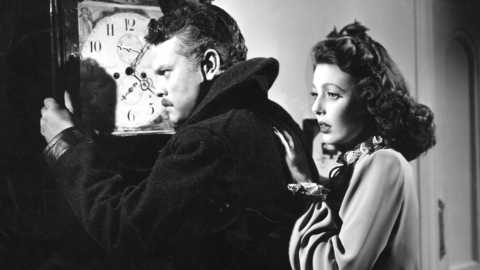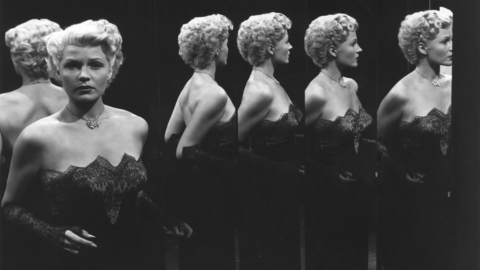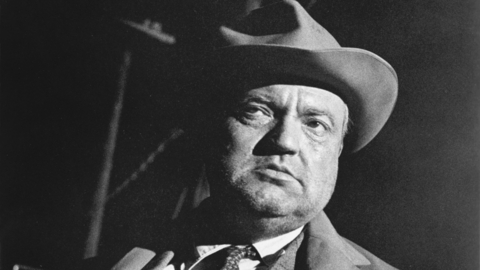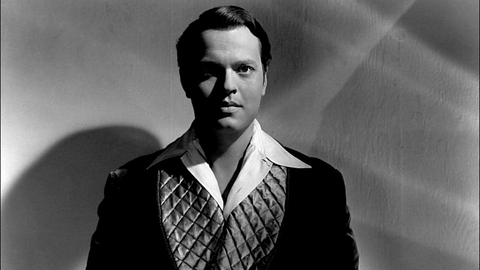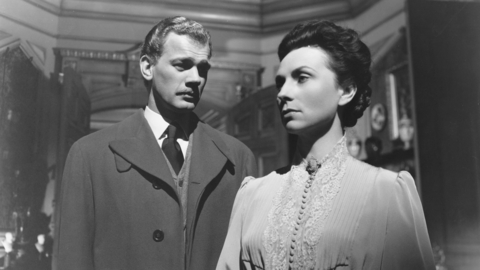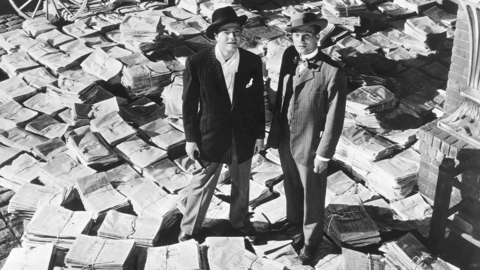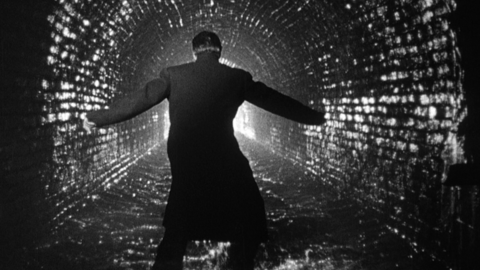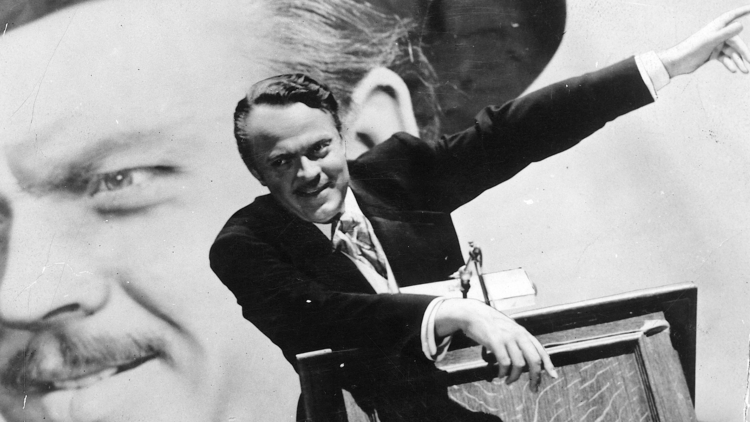
The Magnificence of Orson
Please note : this season finished in July 2015
To mark the centenary of the birth of legendary American director Orson Welles, this month we are screening a selection of standout films from one of the most extraordinary bodies of work in cinema that demonstrate the innovation, experimentation and audaciousness of this magnificent and influential filmmaker.
Below, Watershed Cinema Curator Mark Cosgrove looks back over the career of this landmark figure in the history of cinema.
Citizen Kane, the feature film debut of the barely 25-year-old theatre upstart Orson Welles, regularly comes up top of critics’ polls of the greatest film ever made. Kane changed the way film would be thought of aesthetically, critically and industrially: Welles in his partnership within innovative cinematographer Gregg Toland redefined the language of filmmaking. Critics found in Welles’ a case study of the auteur theory which helped shape how film would be written and thought about critically, and, following their bruising experience both in the production and reception of Kane, Hollywood studio execs would think twice about the wisdom of letting some wunderkid with no filmmaking experience loose in their toy shop. Certainly the impact of Citizen Kane and the subsequent films (made under less generous circumstances) of its precociously talented director remain immense.
As we mark the centenary of his birth it is worth reminding ourselves of the pre-Citizen Kane Orson Welles, in his early 20s and shaking up the world of Theatre and Radio. It was here where the mischievous and creative seeds were planted and which flowered so magnificently, if also painfully, over an astonishing film career.
Welles with his Mercury Theatre – a rep company set up by him and producer John Houseman - had a rising reputation in the New York theatre scene of the late 1930s and early 1940s. In 1937 they produced a manifesto for a socially progressive theatre and one of the many high points was to have people queuing round the blocks to see an all black production of Julius Caesar. But it was on radio that Welles would reach national notoriety with an ingenious reworking of H G Wells’ War of the Worlds. The radio adaptation done as a series of live interruptions to an evening of music has such an air of authenticity that it had the listening public increasingly alarmed to such an extent that Welles and the radio station had to reassure them on air it was an adaptation. Orson Welles reputation was made and the dream machine of Hollywood beckoned however Welles as you see from his films was never interested in dreams but rather in flaws and tragedy.
It is easy to forget that The Mercury Theatre was more than Welles. John Houseman was central to keeping it focussed and solvent whilst the company included actors such as Joseph Cotton, Everett Sloane and Agnes Moorehead – all names that would be part of Welles film career. Behind the scenes were scriptwriters such as Herman J Mankiewicz, who would fall out over authorship of the script to Citizen Kane, and composer Bernard Herrmann who would later forge an unrivalled creative partnership with Alfred Hitchcock and some of the most distinctive film scores in the history of cinema with Psycho and Vertigo (as well of course the atmospheric score to Welles own Citizen Kane and The Magnificent Ambersons)
In film though it was the relationship with cinematographer Gregg Toland that was central. Toland, one of the top Hollywood cinematographers, was eager to explore and experiment with the possibilities of filmmaking. Famously Toland said he could teach Welles everything about filmmaking in a weekend (this would include watching and re-watching John Ford’s Stagecoach) and would get Welles up to speed with the conventional grammar of film. The space given to both men in Citizen Kane would rewrite those conventions and introduce a much more expansive and cinematic approach to visual storytelling from extreme depth of field, extreme angles to dramatic dissolves and combining the language of documentary with fiction.
Welles however would never again have the same kind of freedom and creative control he had on Kane. His next film The Magnificent Ambersons was re-edited by the studio, RKO, following poor test screenings and whilst Welles was out of the country researching his next project. What remains can only hint at the ambition of vision Welles was striving for. From Ambersons on it would be an epic struggle for Welles to make his own films often financing them from other projects and even putting them on hold whilst he went off to raise more money through acting roles or lending his mellifluous tones to advertising. However, these circumstances made Welles, if anything, more creative and his films much more interesting than if they were made in through the studio system.
What we are left with is one of the most extraordinary bodies of work in cinema: films that are innovative, experimental, audacious, and like the man himself flawed but quite magnificent.
Mark Cosgrove
Cinema Curator Watershed
Tickets: £6.50 full / £4.50 concessions and get £1.00 off all meal orders £7.00 or over in the Café/Bar on the same day with your ticket. See our full range of menus here.
